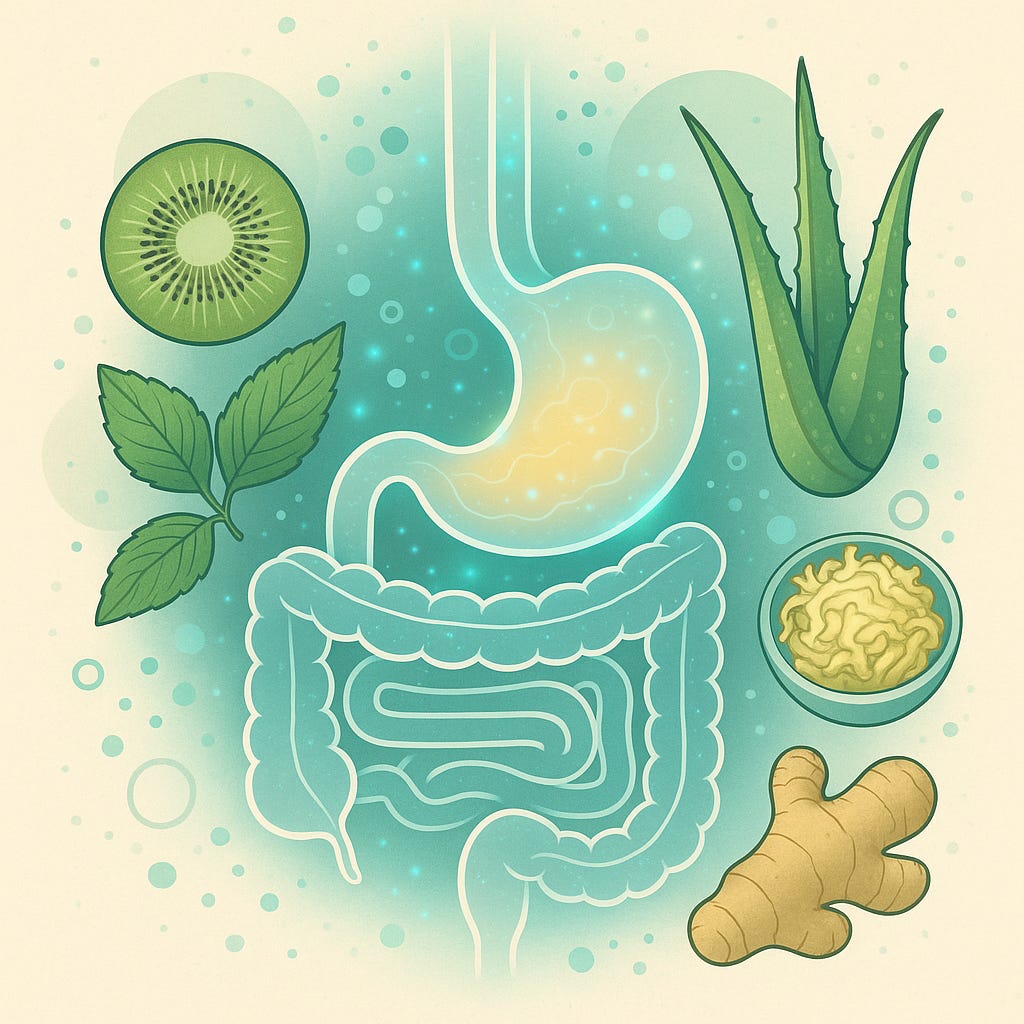Natural Remedies for GI Problems May Offer Relief
Patients with gastrointestinal discomfort are increasingly seeking natural options, with research supporting diets, plant-based remedies, and lifestyle adjustments.
A growing body of research suggests that natural remedies such as low-FODMAP diets, kiwifruit, aloe vera, ginger, and peppermint oil may provide meaningful relief for common gastrointestinal (GI) issues including irritable bowel syndrome (IBS), constipation, reflux, nausea, and diarrhea.
Physicians report that patients are requesting these options more …
Keep reading with a 7-day free trial
Subscribe to Just Healthcare to keep reading this post and get 7 days of free access to the full post archives.


